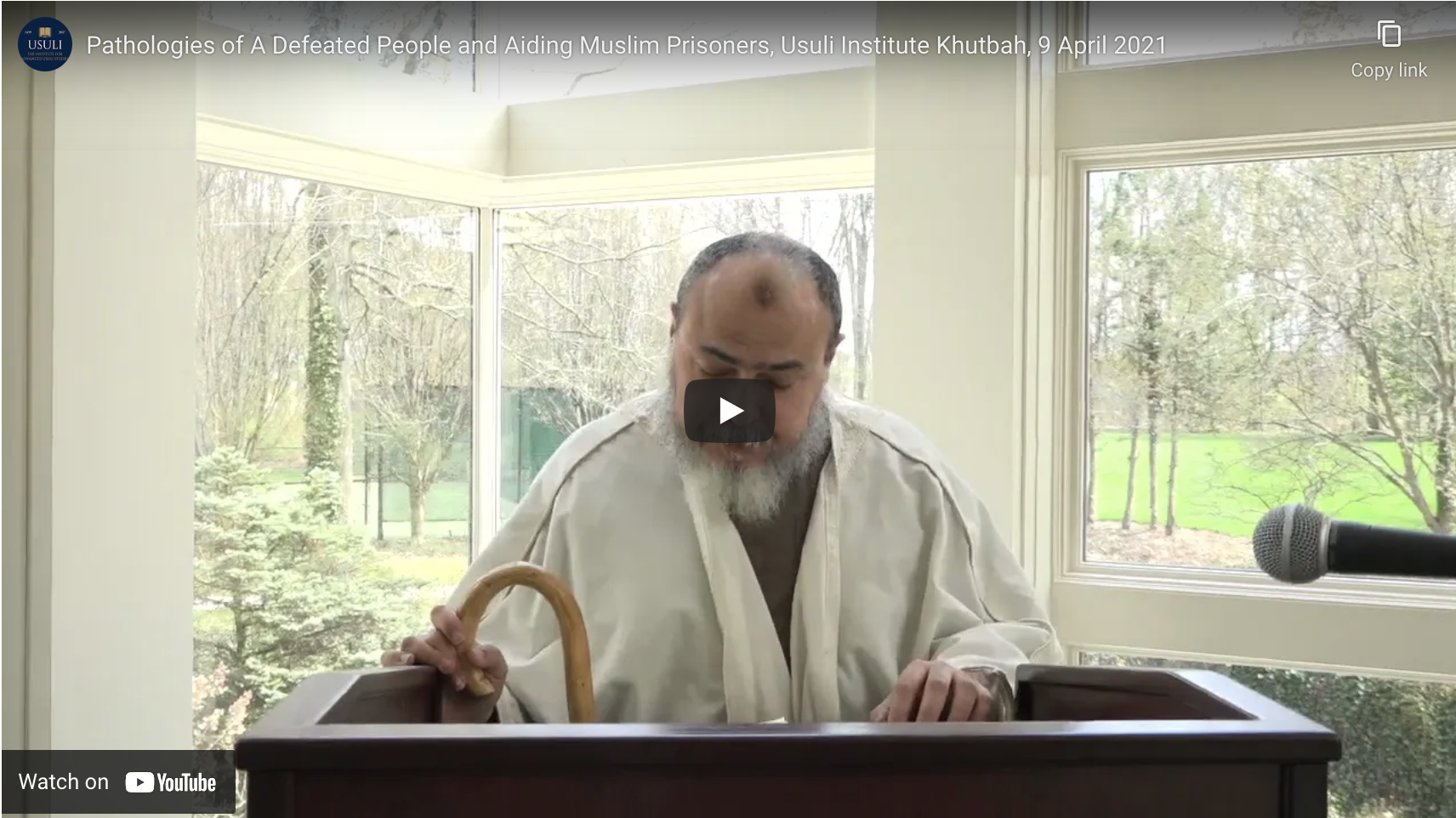Friday Khutbahs (Sermons) · 09. April 2021
In last week’s second khutbah, I spoke about the increasingly restrictive, increasingly racist atmosphere against Islam and Muslims in France, but also more generally, unfortunately, in Europe. As we noted last week, the way this racism is expressed in countries like France is through targeting Muslim women, and in the case of France, outright banning any Muslim woman under the age of 18 from wearing the hijab. Although in France, underage drinking and underage drug consumption is extremely...
Friday Khutbahs (Sermons) · 06. March 2020
SUMMARY DESCRIPTION: Dr. Abou El Fadl begins with the reminder that because humans are often oblivious and forgetful, we take much for granted. The Prophet Muhammad was a moral example of how we should live our lives, and those who fail to understand this guidance lose so much because they cannot truly be guided to the path of Islam. Last week, Dr. Abou El Fadl shared the news that he had become functionally deaf and reflected upon his thoughts as he coped with this life change. Like most...
Friday Khutbahs (Sermons) · 18. October 2019
Dr. Abou El Fadl begins with a reminder that we remain committed to the truth that everything is from Allah, and everything will return to Allah. One of the central narratives of the Quran, that many Muslims learn and often repeat, is Ayat Al Kursi (Chapter 2, Verse 255). It is a monumental reminder of the truth of our existence and our relationship to our Maker. The wisest of Muslims are the ones who reflect even just on this verse, for the amazing amount of insight it yields into our Maker...
Friday Khutbahs (Sermons) · 11. October 2019
Dr. Abou El Fadl reminds that Allah has given us the Shari’ah, a path, a guidance, like a map. So, follow it and do not follow the whims of those who do not know. If you enter into a relationship with the Divine, you will feel the Divine and the Divine will guide you. The unjust are supported by the unjust. The nature of injustice is like an infection. It starts small but grows and extends, and when supported, results in further injustice. It is not just a theological principle; it is a...
Friday Khutbahs (Sermons) · 09. August 2019
In the khutbah before Eid al Adha, Dr. Abou El Fadl reminds us of the beautiful history, theology, philosophy and symbolism of the Islamic pillar of faith known as Hajj, the pilgrimage, to be made at least once in a lifetime by every Muslim on the planet if they are financially and physically able to do so. He reminds us of what the meeting of Muslims from around the world used to mean, long before the age of information and connectedness that we now understand in our current times. Hajj was at...





